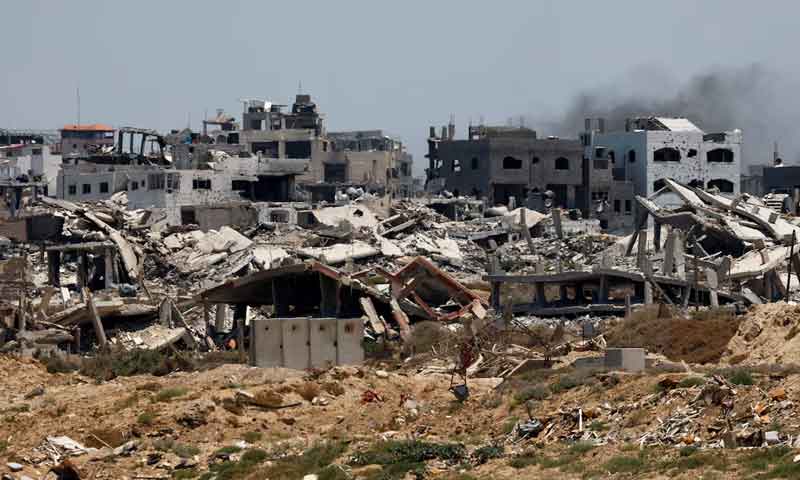
Residents said fighting intensified in the Tel Al-Sultan neighbourhood in western Rafah, where tanks were also trying to force their way north amid heavy clashes. The armed wings of Hamas and the Islamic Jihad said fighters attacked Israeli forces with anti-tank rockets and mortar bombs.
Since early May, ground fighting has focused on Rafah, abutting Egypt on Gaza's southern edge, where around half of the enclave's 2.3 million people had been sheltering after fleeing other areas. Most have since had to flee again.
Also read: Israel strikes kill at least 11 in Gaza, tanks push further into Rafah
Israel says that it is close to destroying the last remaining Hamas battalions in Rafah, after which it will move to smaller scale operations in the enclave.
Medics said two Palestinians were killed in one Israeli missile strike in Rafah.
The Israeli military said in a statement its forces killed a Hamas militant who had been involved in the smuggling of weapons through the border between Rafah and Egypt. It said jets struck dozens of militant targets in Rafah overnight, including fighters, military structures and tunnel shafts.
Despite Gaza genocide, Arab states’ exports to Israel forge ahead
Hundreds of food products from Arab states are being sold in Israel with kosher certification, a research from Middle East Eye and Arabic Post revealed.
Last month, the Turkish government last month stopped all trade with the Zionist state in response to the war in Gaza. However, some Turkish products were still on sale this week in a supermarket in Acre, northern Israel.
Trade links between Israel and countries like the UAE, Egypt, Jordan, and Morocco are unaffected despite international calls for a boycott over Israel’s war crimes in Gaza.
Also read: High risk of famine persists across Gaza, global hunger monitor says
The research report shows that the Chief Rabbinate of Israel has approved kosher certifications for dozens of products from these countries since October last year. Products from Arab countries, including frozen vegetables, oils, and juices, are found on Israeli supermarket shelves.
Some companies deny direct exports to Israel, suggesting third-country intermediaries, while others claim their products are for Palestinian markets. “The trade growth between these Arab countries and Israel can only be considered as their involvement and complicity in Israeli crimes against Palestinians, and the genocide in Gaza specifically,” the report quotes Mahmoud Nawaja of the BDS movement as saying.
Trade data shows fluctuating imports from Arab countries to Israel. Egypt’s exports to Israel in May 2024 were valued at $25 million, double the amount from May 2023. Imports from the UAE and Morocco also saw significant figures.
Controversially, products from Tunisia and Saudi Arabia, which lack formal relations with Israel, also appear in the kosher certification database. Meanwhile, the UAE faced a diplomatic dispute over a shipment of dates with pits, banned by Israel’s Agriculture Ministry for agricultural risk reasons.
Despite global condemnation of Israel’s war in Gaza, trade with Arab countries persists. The UAE maintains its ties with Israel, citing humanitarian concerns for Palestinians as a justification for its stance.




